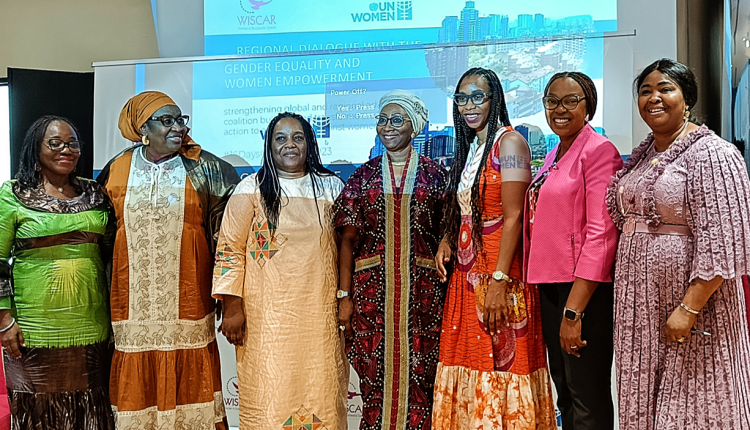In a significant push for advancing gender equality and women’s empowerment in West Africa, the United Nations, along with chief executive officers and directors of private companies in Nigeria, has called upon the private sector to bolster its investment in the empowerment of women and girls in the region.
Regional Dialogue Highlights Commitment to Ending Violence Against Women
The call to action was made during a high-level regional dialogue in Nigeria organised by UN Women West Africa, in collaboration with Women in Successful Careers (WISCAR) and the Nigeria UN Women Country Office. Representatives from several West African nations, including Central African Republic, Côte d’Ivoire, Democratic Republic of Congo, Ghana, Mali, Nigeria, Sénégal, and Sierra Leone, participated in the dialogue.
The event serves as a prelude to the 16 Days of Activism 2023, emphasising the campaign’s theme, “UNITE! Invest to prevent violence against women and girls.” This initiative urges citizens to showcase their commitment to ending violence against women by sharing the actions they are taking to create a world free from such violence.
Read also: UN to empower women, youth in agritech
Nigeria Leads in Women’s Empowerment Principles Signatories
Nigeria, standing out as a leader in West and Central Africa, currently boasts the highest number of signatories to the Women’s Empowerment Principles (WEPs). These principles highlight the private sector’s dedication to implementing practices and allocating resources to enhance Gender Equality and Women’s Empowerment (GEWE). The regional dialogue aimed to amplify private sector interventions for gender equality and women’s empowerment.

UN Women Country Representative to Nigeria and ECOWAS, Ms. Beatrice Eyong, emphasised the critical role of the private sector in advancing gender equality.
She highlighted UN Women’s collaborations with the private sector to create safe spaces for women.
According to Ms. Eyong: “UN Women has collaborated with the private sector to create an enabling environment for women to access their full potential as economic actors, driving gender-responsive procurement, increasing access to finance for women business owners, and addressing violence against women and girls,”
Addressing Funding Challenges for Gender Equality

The dialogue also addressed efforts to enhance the achievements of the $25 Million Private Sector-Led Gender-Based Violence (GBV) Fund launched in September 2023. Mrs. Amina Oyabola, Founder and Chairperson of WISCAR, stressed the need for immediate action and collective partnership to address the significant challenges in funding gender equality initiatives.
“Realising true gender equality demands resolute and immediate action. Monumental challenges, especially in funding, persist. The additional investment needed for achieving gender equality by 2030 is estimated at USD 360 billion per year. A collective and active partnership among government, civil society, and the private sector is indispensable for tangible progress,” Ms. Oyabola stated.
Women Connect, Devnaija Academy train girls in digital skills
Panel Discussions Focus on Strengthening Collaboration
The regional dialogue featured panel discussions with representatives from key organisations such as Ecobank Plc – Nigeria, Endeavour Mining – Côte d’Ivoire, Chambers of Agro-business and WIC – Sénégal, Rokel Commercial Bank – Sierra Leone, and Mrs. Amina Oyagbola – Founder/Chairperson WISCAR. The discussions aimed to strengthen collaboration with the private sector in accelerating the goals of gender equality, women’s empowerment, and the prevention of violence against women and girls.
The panellists shared experiences and strides they have made in their various organisations including mining, agriculture, banking and other sectors.
These shared experiences and discussions intend to inspire sustained investment in advancing gender equality and women’s empowerment. UN Women envisions continued collaboration for the benefit of women and girls in the region, fostering a more equitable world aligned with the Sustainable Development Goals.




